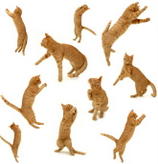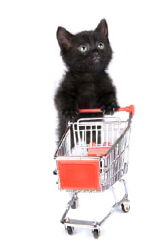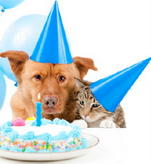Senior Cat Diets & Older Cat Health
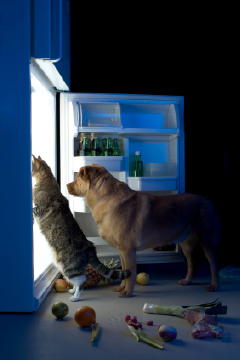
Although your cat is no longer the spry youngster that it once was, senior cat diets are not for all senior cats. You have to consider your cat's lifestyle as well as calendar years. Before you decide to switch your cat from the adult cat food that it's accustomed to eating, you should think about more than just her chronological age.
There is a slow, progressive decline in metabolic rate, lean body muscle mass and physical activity that characterizes the senior years of a cat's life. The body simply doesn't function as well or as efficiently as it once did, and it becomes less capable to respond to illnesses and other stresses.
You will read on the label of some cat foods that it's for cats 8 years or older, or 10 years and older...while one cat may be "old" at 10, another cat may still be well away from being a senior even though it has had 10 birthdays. So don't choose senior cat diets that the cat will eat for the rest of its life based on the calendar.
Just like people vary in how age affects them, so it does for cats. Some cats may tend to get fatter while many others will get thinner. Some cats are plagued with chronic diseases associated with old age and others retain healthy functions. You can see that the nutritional needs for these very different scenarios are like night and day. So, depending on how gracefully your cat is aging will decide when to make the switch to senior cat diets.
There is a lack of consensus among nutritionists and veterinarians as to the true dietary needs of the senior cat although the National Research Council has recommendations for other stages of life such as kittens and reproducing females. The requirements established for the non-reproducing adult have been deemed to be adequate. So, most senior cat diets are formulated or tested to be complete and balanced for "adult maintenance".
Theoretically, most senior diets are suitable for adult cats of any age but what makes them different is that they are usually restricted in calories and certain nutrients, which although still adequate for the healthy adult, are lower than the typical adult maintenance products. Of course there are many variations between manufacturers' versions of senior cat diets ...but some common trends can be seen.
Many senior cat diets are lower in calories than all life stage and adult maintenance foods, although not to the extreme as that for "lite" foods designed for weight reductions. This is done by formulating the diet to be lower in fat content and/or higher in fiber content, which also often lowers its taste appeal. It is known that there are usually decreases in physical activity and metabolic rate as a cat becomes older, hence the calorie needs are presented to be proportionately lower as well.
However, what is not taken into account is the fact that the older cat also may have a decreased appetite or ability to consume and utilize the nutrients in the food. In reality, the problem of an older cat consuming too many calories is not as great a concern as it is for a younger animal. Obesity is much lower in the older cat population compared to middle-aged. Getting too few calories will precipitate the loss of lean body mass, cause a further decrease in physical activity and make the cat "old" much faster.
Also, high fiber in the diet could further interfere with absorption of nutrients, just when the ability for the body absorb nutrients is on the decline already. For many seniors, while they may need fewer calories per day, a change to a decreased calorie, less tasty diet is not necessarily the answer. Slightly less amounts of the food the cat is already eating may be a better solution.
Cats are carnivores and cutting back protein is not a good path. The decreased ability for the body to digest and absorb nutrients probably means that the requirement actually goes up between adulthood and old age. Most senior foods are lower in protein than the adult maintenance ones.
This is based on the idea that protein restriction may be of some help in preventing or slowing down the progression of kidney disease, a common ailment in older cats.
Recent studies have shown that lower protein does not have the preventative measures once assumed. Too little protein in the diet will cause a loss of muscle mass and decrease the ability for the cat to fight illness and recover from injuries. So, unless your veterinarian directs you to curtail protein because a blood test suggests moderate kidney impairment, don't do it.
Some minerals are often lowered in senior cat diets as well. Phosphorus levels are often decreased, for the same reason as protein. However, there is no clear proof that restricting phosphorus is helpful in cats that are not suffering from signs of kidney disease.
When phosphorus is restricted, calcium levels are often lowered to maintain the calcium-to-phosphorus balance, even though the dietary requirement for calcium is probably higher.
Senior cat diets are also restricted in salt. This isn't harmful but it may decrease the taste appeal of the food. Since the older cat may already have a decline in his taste and smell perceptions, this combination of factors may mean the cat would not voluntarily eat enough to meet its daily needs. No matter how well balanced, a diet is worthless it your cat won't eat it.
Although there are restrictions of calories and some nutrients in senior cat diets, a few have nutrients added to them on the premise that they can be useful in combating the effects of old age. Most common are the addition of antioxidants, such as vitamin C and beta-carotene. The jury is still out on if these are effective because cats synthesize the vitamin C the body needs in their livers, so a dietary source of vitamin C has never been shown to be necessary at any life stage.
Too much vitamin C could also aggravate some medical conditions such as the formation of some types of bladder stones like calcium oxalate if your cat has a predisposition to them. As for the beta-carotene, it is known to act as an antioxidant at some levels but it is unclear whether the levels in some senior cat diets are helpful or not.
Senior cat diets can be helpful in some older cats. For the cat that has a tendency to gain weight, the moderately calorie-restricted diet may work to help prevent obesity and keep him lean and active. Since senior cat diets are usually formulated for adult maintenance, they might also be useful for feeding to the slightly chubby but not quite senior adult.
Remember that if you have an obese older cat, any additional weight loss plan should be conducted under the direction of your veterinarian.
For cats with mild evidence of degenerative disease, such as kidney, liver or heart problems, senior cat diets can be helpful as an intermediate step or as an alternative to the more restrictive therapeutic diets. Discuss this with your vet.
If your older cat is maintaining a good weight, keeping active, and gets good checkups at the vet, there may be no pressing need to switch to a senior cat diet just because of age. Feeding the right amount of food depends on several factors including the type of food you are feeding.
If your cat has maintained his weight well through adulthood, anticipate that you would need to feed about 20% less in old age. The amount should be adjusted up or down as needed to maintain normal weight and condition.
If the cat continues to lose weight with increased amounts, a more calorie-dense food may be required. Please note that an older cat may not be able to consume the volume of food he once did as a young adult. If he is eating dry food, you may want to keep it freely available and in the event of difficulty chewing, simply moisten with water or buy a softer brand. If you are feeding canned food that spoils relatively soon, then feed frequent small meals and try to keep to a routine.
An older cat that has a propensity to lose weight probably isn't a candidate for a senior diet. Rather, a more rational switch may be from a maintenance food to one even higher in calories and nutrients such as an all life stages product.
Related Articles......
Return from Senior Cat Diets to Cat Health Homepage
Having trouble finding what you need? Cat Health Index & Site Map
OR
Do you have a question to ask?...Questions
OR
Do you have a cat story to share?...Simply click here to go to that page!
Copyright@2010-2020 All rights reserved.Cat-health-detective.com
This website is information only. Consult a veterinarian for medical assistance
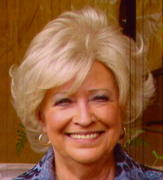
"Like Us" on Facebook
or...
"Like Us" here

